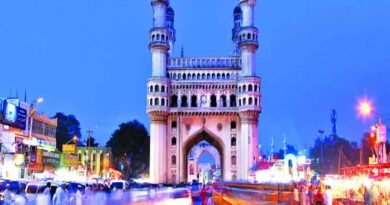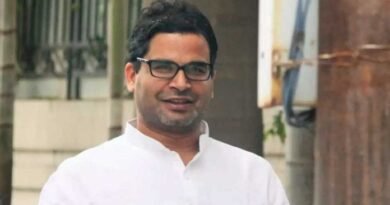Hope in Kerala model
It was because of organised testing that Kerala, a State with one of the best healthcare infrastructure, could effectively treat the patients infected with Coronavirus
In Kerala, god’s own lush green country, it is as real as it can be. Some students belonging to this State, studying in Hyderabad, were stranded at the Karnataka-Kerala border last week. They wanted to come back to their State but were stuck and in dire straits. One of them google “searched” for Kerala Chief Minister Pinarayi Vijayan’s number. This was at 1 am, post midnight. This student was desperate and was just trying her luck. The phone rang and guess who received the call? The Chief Minister himself. It is reported that Vijayan told the student not to worry (don’t worry child…) and that he would find a solution. In moments, she got the number of the top administrative functionaries in Wayanad and when they reached the slated spot, another official was waiting for the students with a vehicle to transport them safely back to their homes. Once they reached their destinations, the girl student called the Chief Minister back to thank him. Vijayan said that he was happy that they had reached safely and asked them to quarantine themselves.
Real-time stories, bordering on myths, have been circulating about Vijayan and his no-nonsense, simple and hard-working Health Minister, KK Shailja, the “teacher” who has openly said that her actions are determined by the advice of experts and scientists and practical and long-term solutions. The manner in which the issue of migrants and visitors, both inside and outside the State, has been addressed reflects just this. Thousands of Keralites work abroad, especially in the Gulf, and the State is a tourist hub with foreigners enjoying its dense green picturesque landscapes, its endless backwaters and safe scenic towns as also its vast coastal regions and sunny beaches.
As tens and thousands of migrant workers and the poor thronged the highways in Delhi and its neighbourhood, mostly heading towards Uttar Pradesh and Bihar, the 21-day lockdown announced by Prime Minister Modi has all but collapsed in the capital and the Hindi heartland. There are now genuine fears that these workers, having travelled in congested spaces, without any healthcare safety, often hungry and penniless, might lead to a major medical crisis in the rural hinterland, which apparently has remained insulated from the epidemic/pandemic.
This would be disastrous and lead to a total failure of the laxman rekha drawn by the Prime Minister in his 8 pm television address to the nation or his doctrine of “stay at home” to maintain “physical/social” distancing in a bid to stop the pandemic from entering Stage-III and, thus, become viral and fatal. This would also jeopardise the efforts of States like Kerala and West Bengal, which have countered the crisis with effective, all-round social security, healthcare and administrative measures.
So how did Kerala tackle the migration crisis? First, much before the country took notice, as early as in March, it had put up health desks at airports to screen passengers coming from abroad. Foreigners cooperated, no one was harassed. Testing and quarantine became a must even as hospitals and isolation centres were kept ready. Even while doctors and nurses and other hospital staff were
given all the facilities at Government hospitals, private ones were sounded off by the district administration to be ready for patients and that, too, free of cost.
If one person tested positive, all his/her contacts were tested, too. All domestic travellers were asked to follow self-quarantine, which they dutifully followed. Concerted counselling over the phone and through inter-personal contact was given to people under isolation or those undergoing treatment. Indeed, it was because of organised testing that Kerala, a State with one of the best healthcare infrastructure, could effectively treat the patients infected with the virus. As their numbers grew, they were quickly identified, given treatment and quarantined. None like Bollywood actor Kanika Kapoor hid their travel history either in Kerala or in West Bengal.
All entry points for railways and buses were thoroughly checked. This was an arduous task but medical teams and volunteers went from compartment to compartment checking passengers and testing them. All those travellers taking a bus went through a similar process. All of this was done with immense dignity, patience and efficiency and as fast as it could be done.
There are around 5,000 fully-equipped shelters in Kerala, which are now catering to around two lakh migrant workers. Not a single labour has been allowed to move out. They all seem to be content to stay at their new “homes.” Significantly, the Government prefers to term them “guest workers,” giving them the due dignity and respect they deserve.
Rations for three months have been provided. Their shelters are clean and sanitised. There is running water, soap, sanitisers and proper sanitation systems. Medical centres and counselling are available 24X7. Volunteers and State officials are always at hand. No wonder, the “guest workers” are happy and grateful. Apart from other measures, one of the most significant steps taken by the State Government is to announce social security schemes and financial package for them. The following steps are significant:
A special package of `20,000 crore has been announced to overcome the COVID-19 threat. (Compare this with the `15,000 crore package announced by the Prime Minister for the entire country). The financial package includes `1,320 crore to disburse two-months welfare pension in advance; `1,000 to families not eligible for other social welfare pensions; `100 crore for free foodgrains to families in need; `50 crore for subsidised meals at `20 and a `500 crore health package. Loans worth `2,000 crore will be made available through the Kudumbashree scheme, a highly successful project accessible to the remotest region. A sum of `2,000 crore has been earmarked for employment guarantee programmes. Further, all arrears will be cleared by the State Government by April, amounting to `14,000 crore. Cinema hall owners have been given an entertainment tax reprieve.
The food issue was nipped in the bud with 1,000 food centres, restaurants and hotels offering free food to those in need and community kitchens were operational everywhere. Door-to-door food, too, was distributed. Significantly, as the Chief Minister reiterated in one of his candid press conferences (unlike the one held by Prime Minister) where he took all questions by the media and explained the finest details of the relief operations undertaken by his Government, those who are embarrassed or shy to ask for food, too, have been provided with the “secret” phone numbers. Food and other amenities will be delivered to them and they need not disclose their identity. This is truly democratic governance where the citizen is given the utmost dignity by the Government.
Free prepaid recharge has been provided to those under observation. The students’ wing of the Communist Party of India (Marxist) has been manufacturing sanitisers and distributing them to the public. Civil society and women’s groups have been roped in to provide relief. District administrations are working with ward and local level representatives, including the panchayats. Hence, even in a centralised system, the process of implementation is totally decentralised, easily accessible and efficient.
The current mission is to create a huge volunteer force. Former doctors have been asked to join the healthcare system again. Be it healthcare or drastic measures taken during natural catastrophes like massive floods or even during the spread of Nipah virus, the people of Kerala and its Government have galvanised resources, communities, religious institutions, the youth, women and students repeatedly and successively to collectively combat the crisis at the most invisible grassroots terrain. That is why, yet again, the State seems to be on a strong and solid footing, even as the virus seeks to damage and ravage the world.
Acamit Sengupta
(The writer is a senior journalist)
The Pioneer




